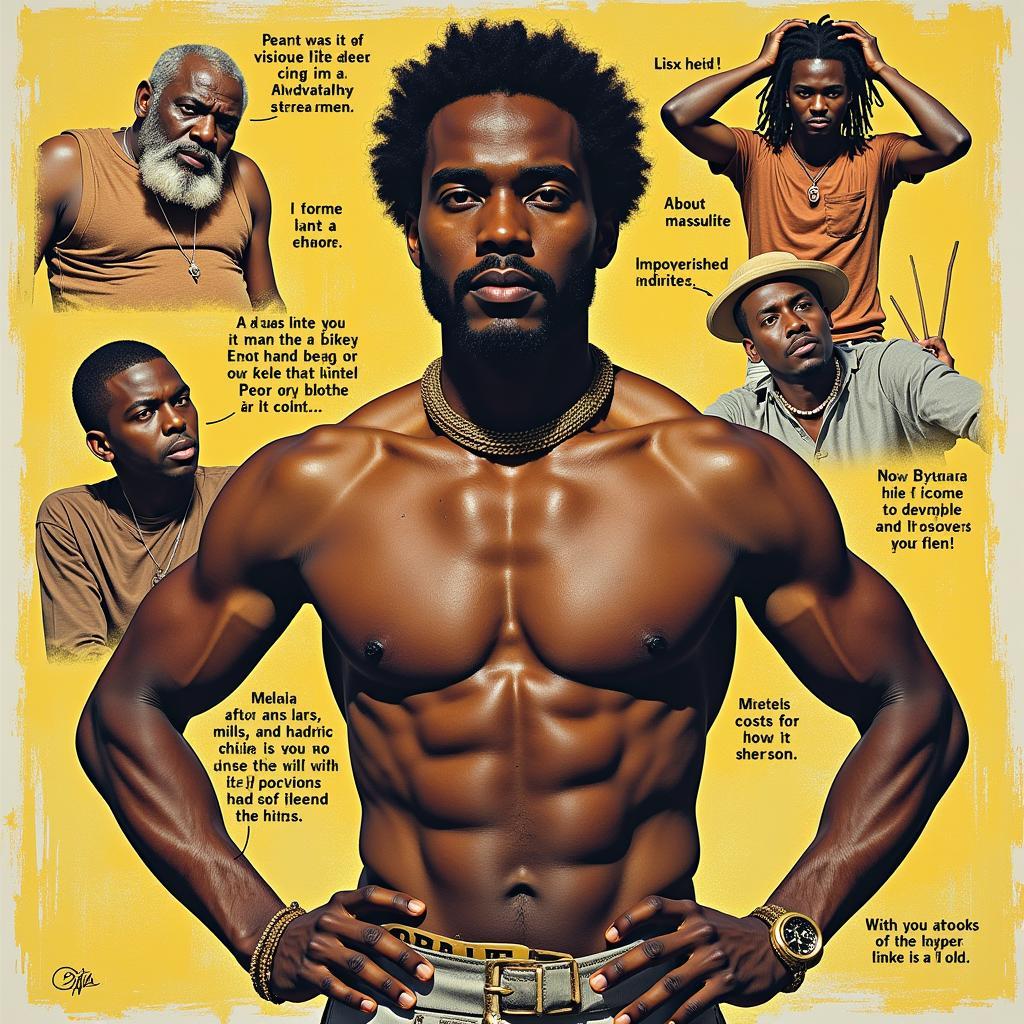African American Literature From Modernism: A Journey Through Words and Time
African American Literature From Modernism onward represents a vibrant tapestry of voices, perspectives, and experiences. This period, beginning in the early 20th century, marks a significant shift in the literary landscape as Black writers grappled with themes of identity, race, and social justice in a rapidly changing world.
The Harlem Renaissance and the Birth of a Movement
The Harlem Renaissance, a cultural explosion that took root in the 1920s and 1930s, served as a catalyst for African American literature from modernism. This period saw an unprecedented surge in creative output from Black writers, poets, and playwrights, all eager to showcase the richness and complexity of their heritage.
Key Figures and Their Enduring Impact
Central to the Harlem Renaissance were luminaries like Langston Hughes, Zora Neale Hurston, and Claude McKay. Hughes, known for his poignant portrayal of Black life in works like “The Weary Blues,” explored themes of resilience, hope, and the power of music. Hurston, a celebrated novelist and anthropologist, challenged prevailing stereotypes with her groundbreaking novel “Their Eyes Were Watching God,” a story centered on a Black woman’s search for self-discovery. McKay’s poetry, often infused with anger and defiance, addressed issues of racial injustice and the struggle for equality.
Navigating a World of Change: Themes in African American Modernism
Beyond the Harlem Renaissance, African American literature continued to evolve, reflecting the ongoing struggles and triumphs of Black communities. Key themes emerged, shaping the literary landscape and sparking important conversations.
Identity and the Search for Self
A defining characteristic of African American literature from modernism onward is the exploration of identity. Writers grappled with the complexities of being Black in a society rife with prejudice and discrimination. Works like Ralph Ellison’s “Invisible Man” delved into the psychological impact of racism, highlighting the struggle for visibility and self-acceptance.
The Legacy of Slavery and the Fight for Equality
The shadow of slavery loomed large, with writers confronting its enduring impact on Black lives. Richard Wright’s “Native Son” offered a searing indictment of systemic racism and its dehumanizing effects. Similarly, Toni Morrison’s “Beloved,” a haunting tale of slavery’s enduring trauma, forced readers to confront the brutal realities of the past.
The Power of Community and Resilience
Amidst these challenges, African American literature also celebrated the strength and resilience of Black communities. Works like August Wilson’s plays, set in Pittsburgh’s Hill District, showcased the vibrancy of Black culture, family bonds, and the enduring spirit of hope.
African American Modernism: A Lasting Legacy
The impact of African American literature from modernism is undeniable. It gave voice to the marginalized, challenged societal norms, and paved the way for future generations of writers.
Shaping Contemporary Voices
Today, contemporary African American authors like Jesmyn Ward, Ta-Nehisi Coates, and Colson Whitehead continue to build on this rich legacy. They explore themes of race, identity, and social justice with nuance and complexity, ensuring that the conversations started by their predecessors continue to resonate.
Conclusion
African American literature from modernism offers a profound and moving exploration of the Black experience. From the Harlem Renaissance to the present day, these writers have left an indelible mark on the literary world, reminding us of the power of storytelling to illuminate, challenge, and inspire.
Frequently Asked Questions about African American Literature from Modernism
What are some key characteristics of African American literature from modernism?
- Exploration of Identity: A central focus on what it means to be Black in America, navigating issues of race, prejudice, and self-definition.
- Social and Political Commentary: Engaging with themes of racism, inequality, and the struggle for civil rights.
- Experimentation with Form and Style: Exploring new literary techniques to reflect the evolving experiences of Black Americans.
How did the Harlem Renaissance influence African American literature?
The Harlem Renaissance served as a pivotal moment, fostering a sense of racial pride and artistic expression. It provided a platform for Black writers to showcase their talents, challenge stereotypes, and shape a new era in American literature.
Why is it important to read African American literature from this period?
These works offer invaluable insights into the historical, social, and political landscape of the 20th and 21st centuries. They provide diverse perspectives, challenge conventional narratives, and promote empathy and understanding.
What are some resources for further exploration of this topic?
- African Diasporic Writers
- African American Culture in the 1930s
- African American Writers in the Harlem Renaissance
Need support? Contact us 24/7: Phone: +255768904061, Email: kaka.mag@gmail.com, Address: Mbarali DC Mawindi, Kangaga, Tanzania.




